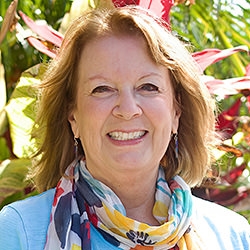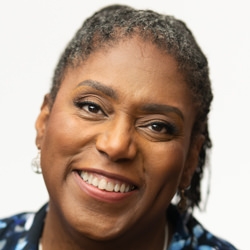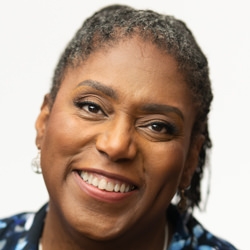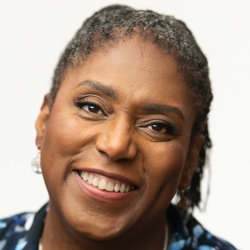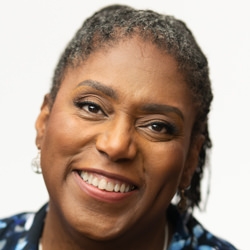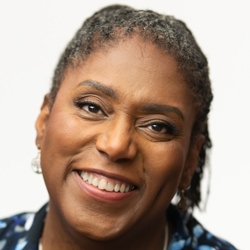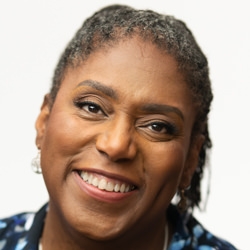

Search Results: nvc
-
Join Elia Lowe-Charde as she shares a story that beautifully illustrates how boundaries are akin to consciously directing our precious energy. She artfully expands upon this concept by highlighting that life-serving boundaries embody the wisdom of discernment.
-
Mary Mackenzie shares how Marshall Rosenberg's Four D's of Disconnection live in her. Join Mary and learn how you can reframe the 4 D's to enhance connection.
-
What would it be like if we raised children who already knew how to be inclusive, who already understood climate change, and who knew that they had a role in keeping our planet liveable? Roxy Manning believes that how we parent can support the next generation in showing up with an innate connection to Social Change.
-
As parents, aligning our values with our actual behavior can be challenging. In this video, Roxy discusses the importance of modeling behavior for children, both in how they handle challenges and in their overall approach to life. Her message encourages using real-life examples to show that everyone is a work in progress and that it's okay not to be perfect.
-
Let go of control and tune in to your child’s needs in everyday parenting.
-
Roxy Manning discusses the connection between the challenges parents face with their children and the qualities they want them to develop. She highlights the importance of aligning actions with desired outcomes, using the example that if parents value independence, they should encourage choice rather than demanding compliance. She encourages parents to consider the long-term impact of their parenting choices on shaping their children's future behavior.
-
In parenting, Roxy Manning notes the tendency for self-judgment and external judgment. Roxy suggests that being a single parent or a working parent influences your ability to implement parenting strategies. The importance of assessing the feasibility of strategies in one's current life context is emphasized. Roxy encourages self-compassion and mourning the gap between desired and achievable outcomes. Her message encourages understanding personal constraints and practicing self-compassion in parenting.
-
Our actions shape children’s self-perception and the stories they tell themselves.
-
Building relationships happens through dialogue and understanding the deeper meaning behind the words spoken. It’s about active listening that focuses on feelings and needs so you may truly comprehend the speaker’s message. In this video, Duke introduces two components of communication and how the restorative dialogue process supports mutual understanding.
-
Yoram Mosenzon shares an exercise and demo to explore the process of identifying observations and using judgements (jackals) to find the needs.
-
Join Itzel Hayward and Kathy Simon as they present two role-play scenarios showcasing diverse approaches to navigating difficult conversations. Throughout the demonstration, they underscore the significance of cultivating self-empathy and mindfulness to effectively engage in challenging dialogues. Specifically, they introduce a role-play scenario concerning affirmative action, aimed at illustrating the contrasting outcomes when utilizing or not utilizing nonviolent communication skills.
-
What is self-empathy? Mary Mackenzie leads you on an exploration of self-empathy through an exercise that will show you how you can easily connect more deeply with your needs.
-
Discover how fostering strong attachment and connection with your child can lead to fewer conflicts and more harmonious interactions. Ingrid Bauer offers practical guidance on using empathy, self-connection, and consistent care to create a secure and loving environment for your child.
-
When Marshall designed NVC, he said that the purpose of it was to create a quality of connection, that inspires compassionate giving and receiving. The zero step is awakening or remembering your intention to support compassionate giving and receiving. Do this practice exercise to awaken this intention and to roleplay with it in your heart.
-
Instead of doing an "apology" using the NVC framework, you can do a "do over" to express regret. This roleplay exercise shows you how. You'll be talking about your needs that were not met by what you did, expressing what you wanted to say instead of what you said, and more.
-
Mary Mackenzie shares practical facilitation techniques to guide participants toward deeper understanding without correction. Through thoughtful pauses and reflective questions, she demonstrates how to help individuals connect with feelings and needs in a meaningful way.
-
Clear, actionable requests are vital for fulfilling needs and maintaining relationships. In NVC, a true request differs from a demand by honoring both parties’ needs equally. Effective requests are specific, present, positive, and doable, and using them strengthens connection, prevents resentment, and promotes mutual understanding. Here are three key skills to making effective requests and three types of requests.
-
Empathy is presence: Mary Mackenzie shows how NVC helps us deeply hear and understand others.
-
Mary Mackenzie shares how making requests in NVC builds honesty, trust, and deeper connection.
-
Explore Self-Empathy with a unique four-step process ending in gratitude.
Quick Links

Stay in Touch!
We value your privacy, won't share your email address and you can easily unsubscribe any time.


